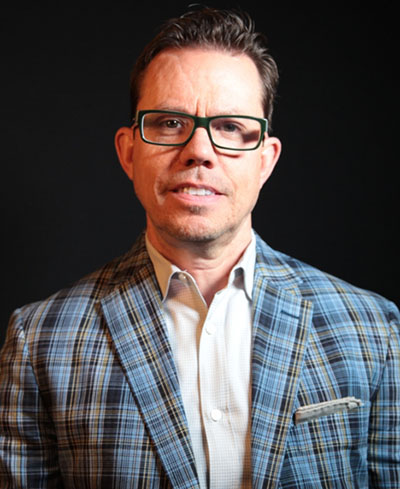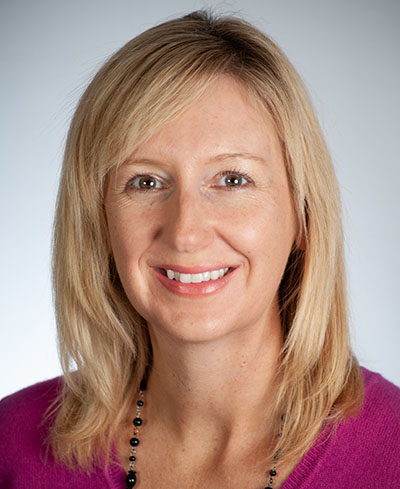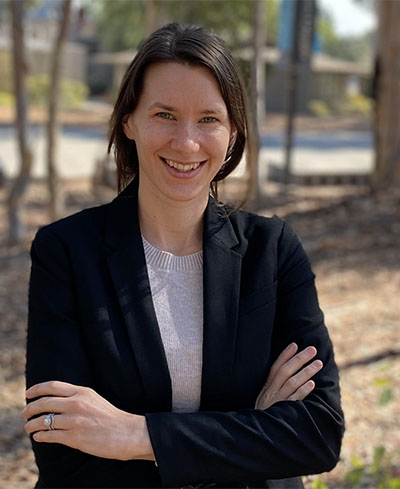Social Sciences Industry Liaisons Help Students Launch Post-College Careers
Published Date
Story by:
Media contact:
Topics covered:
Share This:
Article Content
For many students, the transition from campus to career is fraught with uncertainties — look for a job or apply to grad school? Work for a non-profit or go the corporate route? Stay close to home or accept a job offer across the country? Students also must contend with the cyclical nature of the economy and a workplace that demands constant reinvention.
While the UC San Diego Career Center is a resource for all students in their job search, three departments in the School of Social Sciences have gone a step further by bringing in specialized professionals who are deeply attuned to the unique needs of students in their respective disciplines. They bring their backgrounds, experience and connections with industry groups and professionals to help students learn about themselves, discover career paths and zero in on opportunities in fields that align with their talents and interests.
"Our industry liaisons play a critical role in supporting our students to make a successful transition from college to the workforce," said Carol Padden, Dean of the UC San Diego School of Social Sciences. "Their personalized guidance, and the tools and knowledge they provide our students lay a solid foundation for fulfilling and impactful careers."
Meet the industry liaisons in the School of Social Sciences departments of Cognitive Science, Economics and Urban Studies and Planning.
A four-step framework for success
Andrew Cronan, Department of Cognitive Science
Andrew Cronan’s 20 years of experience in career counseling spans a broad spectrum. He has advised undergraduates in a liberal arts college, counseled graduate medical students on choosing their specializations and helped fashion design students discover career niches in a highly competitive industry.
Cronan, who has a master’s degree in philosophy, came to UC San Diego in 2022 as the first industry alliance specialist in the Department of Cognitive Science where his eclectic background has been an asset in guiding students toward careers in their field of interest.
“I think what I bring to the table are ideas that are evergreen, that work across disciplines and career paths,” Cronan said. “I don't try to be an expert on the employment landscape. I tried to be an expert in delivering the tools that a student needs to make good decisions in their own career.”
The cognitive science major at UC San Diego draws from multiple disciplines, including anthropology, computer science, electrical engineering, linguistics, neurology and neurosciences, among others. Alumni have made their mark in education, technology, health care, product design, just to name a few. It is ranked among the top 10 most popular departments at UC San Diego and offers two of the top 10 majors at the university. Cognitive Science with a Specialization in Design & Interaction ranked as seventh most popular major and Cognitive Science with a Specialization in Machine Learning and Neural Computation came in as the 10th most popular.
“A lot of cognitive science students are drawn to the field because they have a lot of skills and interests,” Cronan said. “They are fascinated and curious about a lot of things, which is great. The cognitive science field gives them many opportunities to explore that.”
"Our industry liaisons play a critical role in supporting our students to make a successful transition from college to the workforce."

Cronan uses a four-step framework to help students make the transition to the working world. First, he encourages students to learn about themselves and what they want by taking an inventory of their values, interests and abilities. Step two is identifying industries and career fields where they will be able to contribute and be appreciated for their talent. Next comes marketing and telling their story. And finally, learning the ways of the workplace — building professional relationships, dressing appropriately, being respectful of others in the workplace and learning to deal with ambiguities. He shares job search resources for students on his YouTube channel.
“I want them to really immerse themselves in this process because they need to use it many, many times in their lives,” he said. “I’m always working on making myself available to them and being seen and accessible.”
Cronan understands how alumni can inform and inspire students. In 2023, he invited 18 notable cognitive science grads to return to campus and speak to students about how they carved out careers in fields like higher education, tech and health care. The event proved so successful that it spawned COGS 193, a career seminar developed by Bradley Voytek, professor of cognitive science. The class features weekly lectures by department alumni who share their insights and experiences with students.
For Cronan, what has been most rewarding in his work is seeing the difference he has made in students’ lives.
“Being able to educate students on the finer points on the things that I've learned over the years is really rewarding to me,” he said. “The pursuit of a career can be very intimidating, a very overwhelming and lonely experience. When students say, ‘Oh, this has been very helpful. Now I know what to do next,’ that’s a great moment for me.”
Equally fulfilling has been the opportunity to work with the faculty and staff of the cognitive science department, he said. “I will tell you that they are among the most welcoming group I've ever worked with and the most student-centered.”
The early bird gets the job
Jennifer Eller, Department of Urban Studies and Planning
When should undergraduates begin to think about career development? From day one of their freshman year, according to Jennifer Eller.
In her first presentation to introduce herself during orientation, Eller, the director of industry relations and student professional development in the Department of Urban Studies and Planning, urges students not to wait until their senior year to begin thinking about careers.
"I tell them ‘I am not trying to overwhelm you but light a fire under you. I want you to be thinking about this now and not wait until the day you graduate,’” Eller said. “One time I did have a student tell me that my visit to their class kind of scared them, but it scared them into action.”
Eller served as a foreign languages program manager at UC San Diego Extended Studies and as an undergraduate advisor in the Department of Structural Engineering before joining the Department of Urban Studies and Planning in 2021. It was a brand-new role, and she jumped right in to immerse herself in the department’s two majors, urban studies and planning and real estate and development, by auditing classes and joining professional associations. “I had to learn more about our specific programs so that students would trust me when I gave them advice.”
Eller says the most important part of her job is to empower students and help them feel that they have what it takes to succeed in the workplace. She calls herself a confidence booster and cheerleader who helps students understand their strengths, skills and abilities. She encourages them to take stock of their accomplishments in the classroom, in part-time jobs and internships to understand that they are not lacking in the experience department
To help them become more marketable to potential employers, Eller advises her students to seek education and training in addition to their coursework. She has developed a comprehensive list of resources for students on the cusp of internship and job searches. She encourages them to join professional organizations that offer mentorship to students and makes sure they list their courses and projects in their resume.
"We have a lot of alumni and industry supporters who are very engaged with our department and want to see our students succeed,” Eller said. “When they were interviewing our students for jobs and internships, they gave us their feedback. They said, ‘Your students are underselling themselves by not listing their courses and projects on their resume.’ That fundamentally shifted how I advise students. I make sure they list their courses and projects, and they understand that what they are getting in their curriculum is a huge part of what they have to offer.”

Eller says students in the Department of Urban Studies and Planning have a built-in advantage in their job search because of the experience they rack up with required internships and capstone projects. They also gain field experience with activities such as construction site visits to meet with developers, architects and construction site managers, and conducting field research to evaluate resources for the unhoused. Department students have competed and won multiple times in an intercollegiate competition to come up with the highest and best use for a real site in San Diego.
“Our classes have a lot of projects that are directly transferable to industry,” Eller said.
To build on the advantage, Eller invites employers to campus to present case studies and make presentations about their companies. She hosts mixers to give students opportunities to mingle with alumni who have made their mark in fields like real estate analysis, brokerage, architecture, land use planning, transportation planning and graphical information systems, among others. She has forged connections with industry groups including American Planning Association, Urban Land Institute and CREW Network (Commercial Real Estate Women). She publishes a student-facing blog, a compilation of internships, jobs, scholarships and events.
“What I find most rewarding about my job is helping students, especially those that are first-generation college students or do not have someone to lean on for professional development advice, enhance the return on investment on their education via proactive career exploration and development, as well as helping to build the confidence of students who sometimes do not realize how amazing they are.”
A connector of people
Karen Doescher, Department of Economics
Karen Doescher came to the Department of Economics in 2022, becoming its first director of industry relations and student professional development. The intiative is supported by the philanthropy of department alumni who recognized the important need to support students on the cusp of launching their careers.
The first in her family to earn a college degree, Doescher received her master’s degree in international affairs from UC San Diego in 2015 and later became an associate director at the main campus career center where she dispensed career development advice to international students. Since joining the Department of Economics, Doescher has focused her efforts on helping economics majors make career exploration an integral part of their four-year undergraduate education at UC San Diego.
“In the past, career development has always been sort of like an extra thing outside of course work. We are trying to integrate it. We want it to be not only a part of the college experience, but really integrated with their academics,” she said.

Doescher wears many hats in the Department of Economics. She is a resource for economics majors in their career exploration. She engages with alumni to tap into their knowledge, experience and ability to mentor current students. She brainstorms with faculty and campus partners on how to improve career guidance practices to benefit students. She conducts outreach to employers, recruiters and alumni champions in finance, consulting, accounting and tech to source leads for internships and job opportunities for students.
“It’s all about raising the profile of UC San Diego’s economics talent,” Doescher said. “We want the business community to know that we have top talent coming out of the School of Social Sciences.”
In advising students, she draws from her own life experiences and urges them to begin their career exploration early.
“You focus on your classes, you try to get your grades, and you assume that there is going to be an employer handing you a job when you get out,” she said. “It didn't work like that 20 years ago. It really doesn't work like that today.”
Doescher has developed a year-by-year planning guide for students that covers everything they need to do beginning in their freshman year. It includes tasks such as joining a student organization, getting involved in leadership roles, making a list of classes they are interested in taking, career paths they want to explore and connecting with alumni and employers to find internships in those fields. The department’s EconUg blog is an another career exploration resource for students.
“The timelines are much earlier than what students expect,” said Doescher, who has seen firsthand the panic that sometimes sets in when graduation is on the horizon. “I'm really focused on getting our incoming freshmen becoming aware of career resources and timelines.”
When students speak, Doescher listens. Out of those listening sessions, some formal conversations around a table and some spontaneous chats in hallways, she has been learning about the career guidance needs of economics majors. In the process, she has come up with ideas for career-centered events including a very popular networking mixer that Doescher organizes each quarter to bring together students, alumni and employers. It has proved to be a big draw for all three groups.
“Students get a lot out of it,” Doescher said. “They learn about career paths. The alumni also really enjoy the experience of being able to share their advice, their wisdom, the mistakes they made, and lessons learned to kind of help guide somebody. For employers, it’s a chance to raise their brand awareness on campus, connect with students, and let them know that it’s a company that they might want to apply for jobs in the future.”
Doescher has also launched mock interview sessions, where she invites employers and alumni to help students hone their interviewing skills, whether it’s for a student organization, internship or a full-time job.
“They may be students at different levels,” Doescher said. “They may be very well prepared and need a little polish, or it may be someone who has never done an interview before. We create this environment where whatever their level is, they can come in and they can get some support.”
Always on a quest to improve the student experience, Doescher will soon begin sending out a bi-weekly newsletter for all economics majors. She is collaborating with department faculty who are developing a for-credit course on career exploration.
For Doescher, the reward from her work is being able to utilize her background and experience to build a new program from scratch to help students launch their post-college futures. “It’s been a great experience learning from students, from alumni and employers and figuring out what a program like this should look like.”
Teaming up for student success
While each of the three counselors serve different departments and student populations, they come together to brainstorm ideas, share best practices and host special events. They have also collaborated to develop a customized Salesforce database to record and track contacts with alumni and employers.
“I find it very helpful to hear what's going well for them, what changes or pivots they would make for future events, and if there are opportunities to collaborate such as on panels or workshops that would be useful for all of our students,” said Eller, echoing the sentiments of her counterparts in cognitive science and economics. “Given our unique positions, having colleagues who understand the wins and challenges I face in this role is also personally helpful and supportive.”
Stay in the Know
Keep up with all the latest from UC San Diego. Subscribe to the newsletter today.




